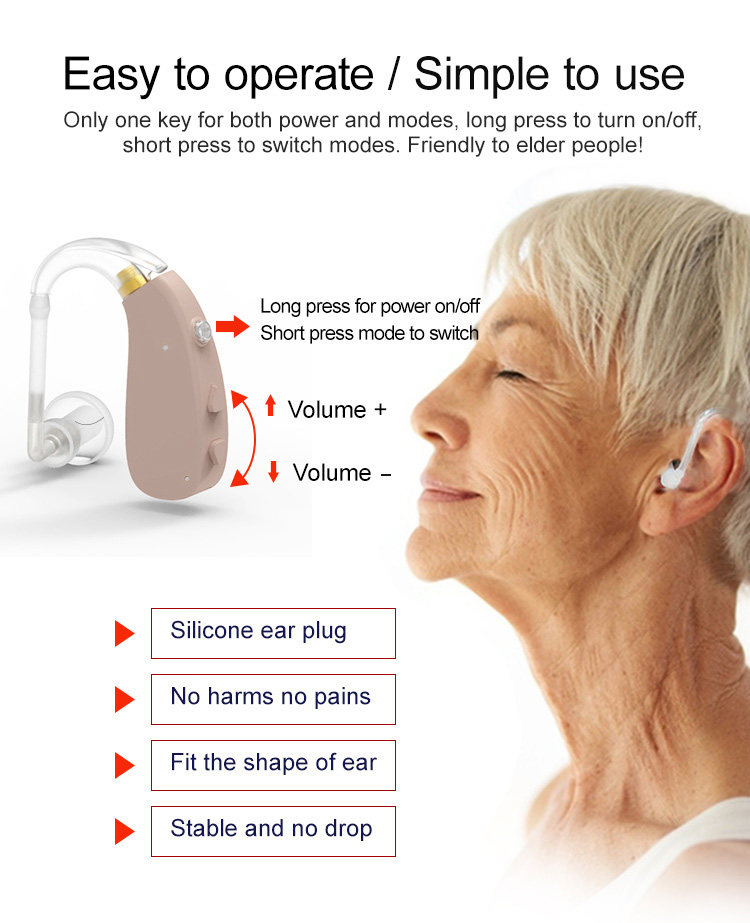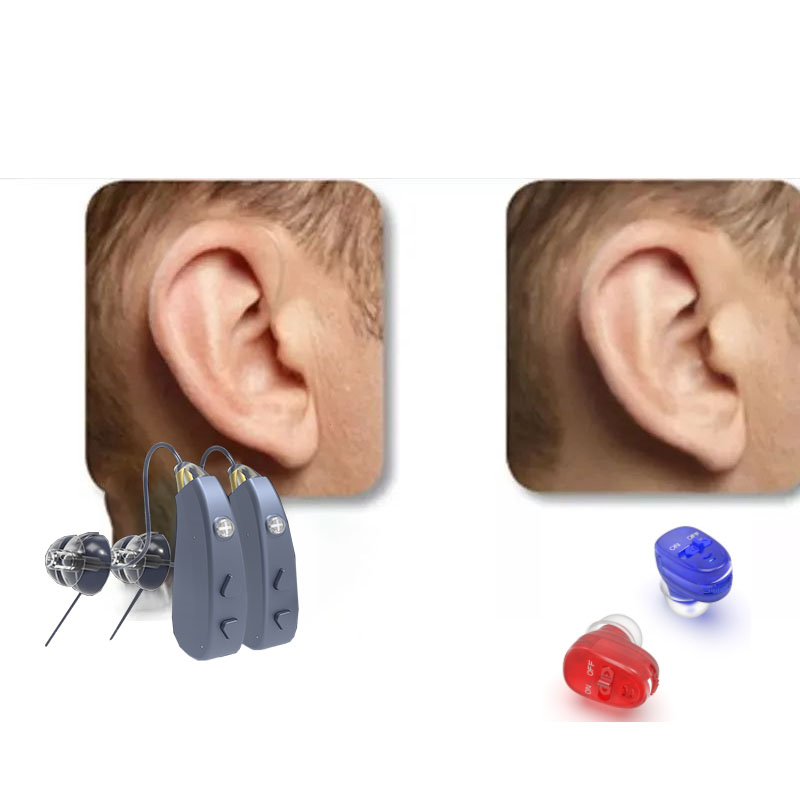
For people with poor hearing, whether you are preparing to choose a hearing aid for the first time or have been wearing a hearing aid for many years, you will ask the following similar questions:
"There are so many kinds of hearing aids on the market with so many functions. Which one is the most suitable for you?"
"After wearing a hearing aid for so many years, is this the best one for me?"

So, how to choose a suitable hearing aid?
1. choose according to the degree of hearing loss: if the hearing loss is more serious, the power of the hearing aid will be greater. If the hearing loss is not serious, the low-power hearing aid will be OK.
2. consider according to your own needs: see what aspects of listening problems you want to solve and what functions you need. For example, if some people are old and seldom go out, and the home environment is very simple, it is recommended that they should have basic listening AIDS, which do not need too many functions. Some young people with complex life circle may need Bluetooth function, charging function, etc., and products with more functions such as interacting with devices.
3. according to their own expectations, some people may have requirements for the shape of hearing aids, such as concealed or ear back type. However, hearing loss may conflict with expectations, so patients need to communicate their own needs with the match maker, who will weigh and make appropriate choices.

4
Understand your hearing
This point mainly refers to the finger operation when hearing aids are used. Elderly people with weak hearing often need special attention.
Old age, suffering from diabetes, Parkinson's disease or other diseases may lead to numbness of fingers or inconvenient operation.
The hearing aid mall, with fine internal parts, and the smaller the shape, the smaller the operable external adjustment.
If it is difficult for the hearing impaired to operate the battery door and volume button of this kind of small hearing aid, it may be more suitable to wear a slightly larger BTE hearing aid
To say something that seems old-fashioned, both eyes are short-sighted and need to wear a pair of glasses with two lenses.
Similarly, if binaural hearing loss occurs, both ears need to be equipped with hearing aids. Binaural wearing largely determines the wearing effect.
There are many benefits of binaural wearing, including distinguishing the direction of the sound, hearing more three-dimensional at the nd full, hearing more clearly in a noise environment, avoiding hearing deprivation, alleviating tinnitus, and so on.
Therefore, in case of binaural hearing loss, if only a certain price can be borne, wearing a pair of hearing aids in both ears is better than wearing a hearing aid with the same total price in one ear!
Feel the silver in your pocket
When choosing a hearing aid at any price, you need to consider your own economic situation and the effect of trial wearing.
Expensive hearing aids usually have more advanced functions, but this does not mean that every deaf person needs so many functions.
For some people, hearing aids at a lower price may already meet all their needs.
For example, people with moderate hearing loss, who retired at home, usually only need two to talk with their wives at home. At this time, low-cost hearing aids with general performance may be able to meet the needs of people with poor hearing.
Therefore, when selecting hearing aids, you can listen to several hearing aids at different prices according to your own economic situation, and then make a reasonable choice based on the above-mentioned aspects.
Conceptually: wearing a hearing aid is just the beginning
If you want to make the hard chosen hearing aid hard-chosen for you, wearing the hearing aid is just the beginning. You also need follow-up hearing rehabilitation and follow-up debugging.
In the early stage of hearing rehabilitation, it is recommended that the hearing impaired communicates with their family and friends about some precautions, such as face-to-face dialogue, slowing down the speaking speed, enunciating clearly, being more patient, etc.
In addition, it is necessary to be a "conscientious person" in the process of rehabilitation, and pay attention to observing and recording the difficulties in listening in daily work and life.
Copyright © 2025 Guangdong ENNO Medical Technology Co., Ltd., All Rights Reserved.